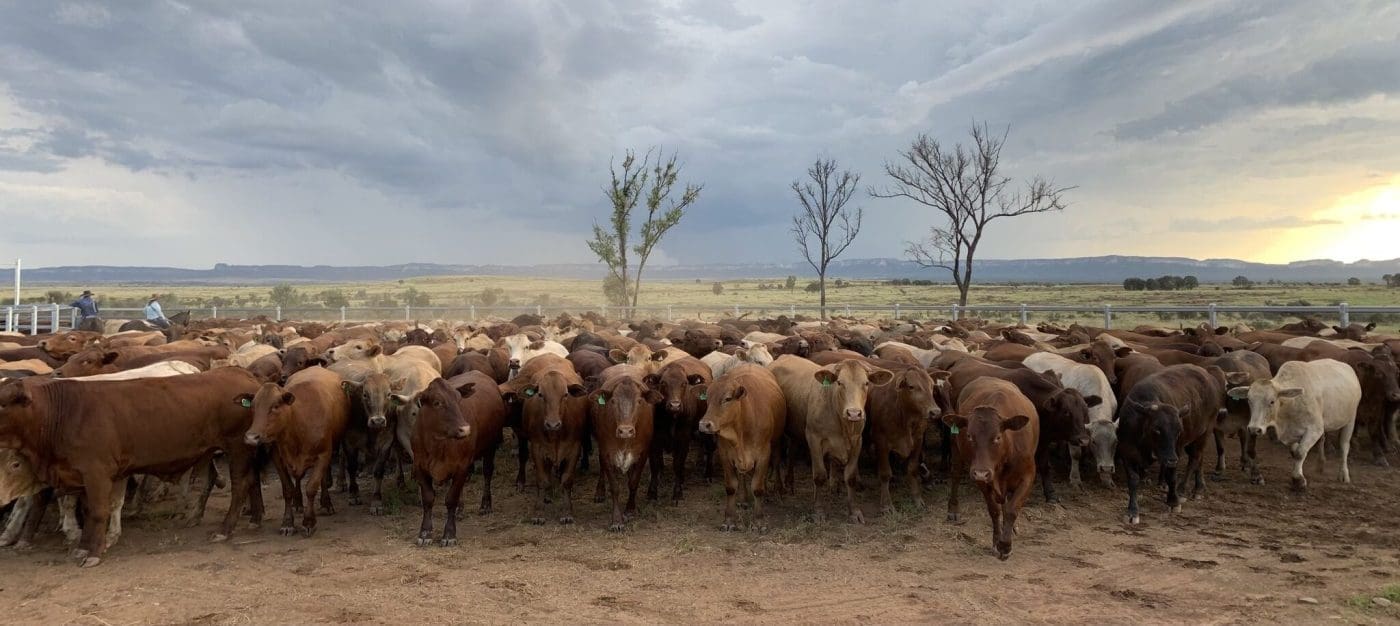A “WORLD FIRST” system to deliver Bovaer to backgrounding cattle has shown how the feed additive can reduce methane emissions and increase daily weight gains.
Bovaer is one of the most well-known methane-reducing feed additives across the world and is currently being trialled in a range of different forms in both feedlots and grazing systems. Representatives from the parent company DSM travelled to Australia from The Netherlands for Beef 2024 in Rockhampton (Beef Central will have a separate story on the company).
The latest MLA-supported trial run the University of Queensland used a pellet system to deliver Bovaer to 150 cattle, supplied by the North Australia Pastoral Co. NAPCo was one of the first Australian beef brands to claim carbon neutral status and has been working to measure and reduce its emissions for many years.
They were split into three groups – the control group was grazing only, and the other two groups were grazing and also received either an energy pellet or an energy pellet containing Bovaer. Their methane emissions were measured using a GreenFeed system.
The trial showed that in a typical backgrounding period, animals given Bovaer pellets would reach their target weight 28 days faster than energy pellets alone and 54 days faster compared with grazing only. This would amount to a reduction of 340kg of CO2 equivalent per head.
In releasing the results, MLA says the cost of using the additive more than paid-for in the value of methane reductions (based on Australian carbon credit units) and productivity (weight gain) improvements.
More Bovaer research on the cards
MLA says it will continue to invest in optimising the delivery of methane inhibiting feed additives across a range of feeding and grazing environment.
“Future research should focus on the method of delivery to ensure a constant supply of Bovaer to grazing cattle when the use of automated feeders is not a viable option, or distances are too far for cattle to feasibly visit several times per day,” it said in the results.
“This work could also focus on pellet formulation with alternative minerals, treatment of Bovaer or pellets to reduce loss of Bovaer during palletisation and storage, or to extend the duration that Bovaer is available in the rumen once consumed by the animal.”

